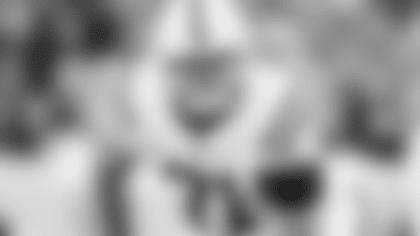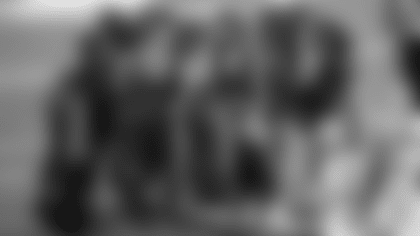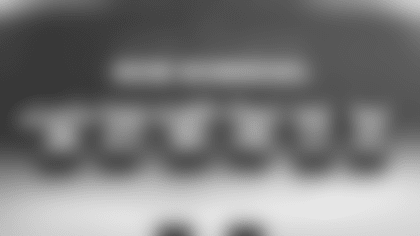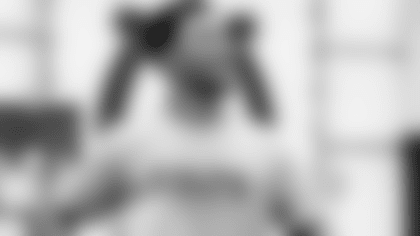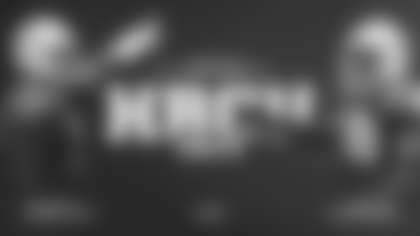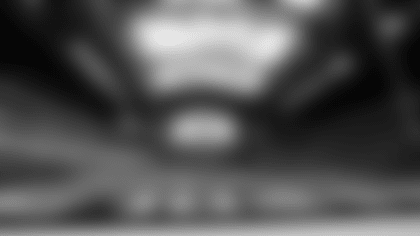Bill Polian is in his first season as Colts vice chairman after spending the previous 13 seasons as Colts president. Polian has a resume unique in the NFL. The only man to win NFL Executive of the Year six times, Polian in the 1980s built the Buffalo Bills into a four-time Super Bowl participant. In the mid-1990s, he built the expansion Carolina Panthers into a team that made the NFC Championship game in its second season, 1996. Since joining Indianapolis in 1998, he built the Colts from a 3-13 team in 1997 and 1998 into one that has made the playoffs 11 of the last 12 seasons, including AFC Championship game appearances after the 2003, 2006 and 2009 seasons, an AFC East title in 1999, AFC South titles in 2003, 2004, 2005, 2006, 2007, 2009 and 2010, Super Bowl appearances following the 2006 and 2009 seasons and a Super Bowl championship following the 2006 season. Each week during the season, in The Polian Corner, Polian and Colts.com will discuss issues pertinent to the Colts and the rest of the NFL.
The Polian Corner will run in two installments each week. Below is this week's second installment:
Q: Do you have any thoughts to run a 'wildcat' play maybe using Joseph Addai?
A: I think you are referring to the play where Josh Johnson came on the field. That isn't the 'wildcat' play. There is a disconnect with the language we use and the language you hear bandied about in the press and on radio and TV. 'Wildcat' would be analogous to the kind of formation and action that Cam Newton did at Auburn. It's essentially a single-wing. What Johnson did was come in and run what is called a 'speed-option.' He was an option quarterback. He came out on the corner and if we had attacked him, he would have pitched the ball to the pitch man. It was a counter-option because they had counter-flow the other way. It was a very good play call. The option rarely is run in professional football because you worry a lot about the quarterback being hit. We didn't deploy to stop it well enough, and they got a play out of it. We don't have any option quarterbacks on this roster, I can assure you of that. You have to have a special skill to run that.
Q: How does adding new players because of injuries to current players impact the salary cap?
A: Well, it does affect your salary cap because you get charged dollar-for-dollar basically whatever you have to spend. If you have an epidemic of injuries where you had to put a lot of fellows on injured reserve as we did last year – I think we finished with double-digit people on injured reserve – had there been a salary cap last year I think we would have been in some degree of trouble, which would have meant that we probably would have gone into the playoffs with less than a 53-man roster. That's what happens when you have an epidemic of injuries. There is no means in the salary cap to deal with that other than to create room by re-doing contracts of players that are on your team, which is kind of the standard way you do it. We don't have a lot of esoteric contracts, so there is not a lot of maneuvering room for us. Hopefully, we won't be in that position. There is one other sort of mechanism that gives you some grace and that is the so-called 'veteran exemption.' A veteran player who, let's just say was scheduled to make $800,000 a year, you could put him in at the cap number that is a much lower number, $425,000 or $450,000 a year. It's called a 'veteran exemption.' You pay him the full amount so it costs you in cash, but it doesn't cost you on the cap. In these kinds of situations when you have an extraordinary amount of injuries, those are the kinds of fellows you are looking for who can qualify for that."
Q: Why doesn't the NFL have a 15-day disabled list like Major League baseball does?
A: Yes, that is a very good idea. I'll give you the history of it. Before the salary cap, you were allowed, I believe, three or four of those 'free activations' from the injured reserve list each year. What happened was teams would phony-up injuries and put guys on the injured reserve list with a phony injury and then have them practicing all year, and have them come up whenever there was an injury. That was commonly called 'stashing.' In the mid-90s the Competition Committee took a very firm stand against stashing, largely at the behest of Don Shula and many of the other legendary figures in the game, George Young among them. We said that there were no moves, no free re-activations off injured reserve, but we created the eight-man inactive list. We went from a 45-man roster to a 53-man roster. So the players that were injured are supposed to be on that inactive list each week. The problem is that the way practices are in this day and age, if you are short of players because they are literally inactive because they're hurt, you have to fill out your practice squad in order to practice. It becomes a roster management nightmare. We now have a salary cap, so stashing no longer inures in favor of a very wealthy team who could pay a lot of players on injured reserve as opposed to a team that wasn't so wealthy, who couldn't pay a lot of players on injured reserve. I think it's now time to take a look at perhaps, one, two free re-activations from injured reserve. There are a number of ways to do it. It's overwhelmingly favored by the general managers. I'm making news tonight for my fellow members of the Competition Committee, because I have been unalterably opposed to changes on injured reserve over the years, not because of Peyton's situation (but) because of where we are in terms of the way the game is played and the number of injuries that teams incur in a given year. I think free re-activations of some kind under some very strict circumstances with the salary cap over-hanging all of it is probably an idea whose time has come."
Q: What about the thought that most injuries occur on artificial turf, not grass fields?
A: Yes, that's one way to look at it. The other is that field has been re-sodded in the middle because it's used by the University of South Florida, among others. I'm not sure if they play high school games there or not, but certainly South Florida plays a full schedule there. It's not absolutely ideal, but it's a wonderful grass field and injuries can occur on any field. There are a lot of injury theories floating around that really don't hold water when you analyze them, when you analyze hard data. Thus far, we are unable to determine any great degree of difference between injuries on the so-called 'infill' surfaces. There is no artificial, Astroturf anymore. They're all 'infill' surfaces and grass surfaces. The fact of the matter is this is a brutally physical game and injuries occur at a very high rate, regardless of the surface."
Q: Do game officials give more leeway to opposing tackles to hold because Dwight Freeney is so good?
A: We always have complaints about offensive holding because our rushers, particularly Robert (Mathis) and Dwight (Freeney) are so good. I think, on balance if you look at the rule and look at the way it's applied, what they're really saying is, 'Did the offensive player materially restrict the defensive player?' Now, the definition of 'materially restriction' varies from official to official, sometimes on the same crew. There are crews like last night that pretty much go by the book. I'm not sure what plays you are referring to, but the ones that were called, I thought, were deserved. There were some that were somewhat questionable. If you put yourselves in the official's shoes and say how much material restriction really was there, you tend to come down on the side of the official. Do they miss some? Sure, they do. Everybody does. No official is perfect just as no coach, or player or general manager is perfect. Everybody makes mistakes. I think by and large what I'm seeing thus far with respect to offensive holding has really been pretty good. I don't have a lot of complaints along those lines. I'm more worried on what's happening down the field with receivers. It's far too early to tell on that score but relative to last night, you can point to any number of plays and say, 'That's holding.' If you apply the officials' definition, by and large I would say they did a good job."
Q: What about the old theory if the play went right and there was holding on the left, they didn't call it. Is that sort of what happens?
A: Look, no one wants 27 penalties in a ballgame. That upsets people, some more than others. The fact of the matter is no one wants that. The bottom line is if there's a penalty that is not a personal foul, where it becomes dangerous to a player involved, and it does not have a material effect on the play – for example, if there is a hold on the left end when the play goes to the right and it doesn't have a material effect on the play – they let it go, and that's okay. There is nothing wrong with that. What they have to get – as an example, in the first game of the season, we had a defensive tackle (get) chop-blocked, plain as day (and) he's out with an injury – they've got to get those. Those are the ones that get you upset. By and large from my perspective, I think the holding calls are pretty good this year. I think they're doing a pretty good job of it."
Q: Why aren't the Colts' quarterbacks being protected better? We have three injured.
A: Well, it's a combination of a number of different things. Let me take you back to the 'good old days' with Tarik Glenn and Ryan Diem at the tackles and Jeff Saturday at center and Ryan Lilja at guard and Jake Scott. Those fellows played together, and that particular line played together for about six years. When they played together, they developed a cohesion among them which is, in many cases, unspoken and is based upon common recognition of all five guys as to what's occurring in front of them. It occurs at very high speeds and with incredible amount of power. It's a tough job but when you have played together as those fellows did, you can do it with little communication and with tremendous efficiency. We had a system that Howard Mudd developed, which Pete Metzelaars and Ron Prince have continued, that gave them the ability to be really efficient. When you change players and you put in two rookies, as we have with Anthony Castonzo and Ben Ijalana, and you have a second-year player in (Jeff) Linkenbach and the old man of the group, Jeff Saturday, up front making the line calls and Joe Reitz, a first-year player, a rookie for all intents and purposes, and Mike Pollak, who is a third-year player, it's much more difficult to get that cohesiveness. It's much more difficult to recognize who to block in all these different situations. The ones that give you the most trouble are usually the blitz situations, and Tampa Bay is very good at doing that. The cohesion, because we've got a lot of new players, is not what it will be in the long term. As Ijalana proved last night, he is a big-time, big-league tackle. We have two tackles that can be anchors for years to come. I think in Reitz and Pollak we've got two guys that can be anchors for years to come. That group is coalescing, but it is not there yet. Then when Castonzo and Ijalana went out with injuries and we had to create an offensive line from whole cloth, if you will, it's much more difficult to protect the passer, and the other team knows, as they did in the fourth quarter, that you are going to have to throw the ball, they're coming after you hammer and tongs. It's difficult when players are new, or you have injury replacements in there who are not used to playing, not used to playing the position they're at, it makes it really difficult. That was the case last night, which is why Curtis Painter deserves great credit for the way he performed. He was under duress for most of the second half and he did a heck of a job."
Q: With a tough defense coming in with coordinator Romeo Crennel and a great player in Tamba Hali, how soon do you need to come up with answers for Sunday?
A: Well, probably tonight, if we can. We'll find out what the injury report is and then we'll deal with it accordingly. Romeo Crennel is a heck of a defensive coordinator. Tamba Hali is one of the great defensive ends/linebacker in this league, a pass rusher and he's a load. We had our hands full with him last year. I'm sure Romeo, as smart as he is, will do everything he can to create positive matchups for Tamba. This is a tall order, given the injury situation. We will take a look at it tonight, and we've got to get ready to play tomorrow. It's a short week."
* *
Q: Kansas City got its first win last week and it's a good team, isn't it?
A: (Wide receiver) Dwayne Bowe and (quarterback) Matt Cassel had a good day. He's coming into his own throwing the ball. Their offensive line is much improved. They've got Thomas Jones in the running game now and, of course, (Dexter) McCluster, who's a dynamic guy in the return game and from scrimmage, running and passing. But if Cassel picks up the efficiency in the passing game, they will win a lot of games. They have a good defense and what they really lacked last year to go far in the playoffs was a top-notch passing game. So if Matt Cassel is back to what he was when he played in New England, he'll be pretty good. Certainly they're a tough test for us with how banged up we are."
Q: It was a low-scoring game last year. Have they changed much at all?
A: If they can open it up with Cassel throwing it, now (Tony) Moeaki is hurt. He's their great tight end but if they can open it up in the passing game, they can score a lot of points because McCluster is a home-run hitter and Bowe is a home-run hitter. They've got some guys that can go get the ball. If they can protect and they do throw it, if they open it up, they are capable of scoring a lot of points."





